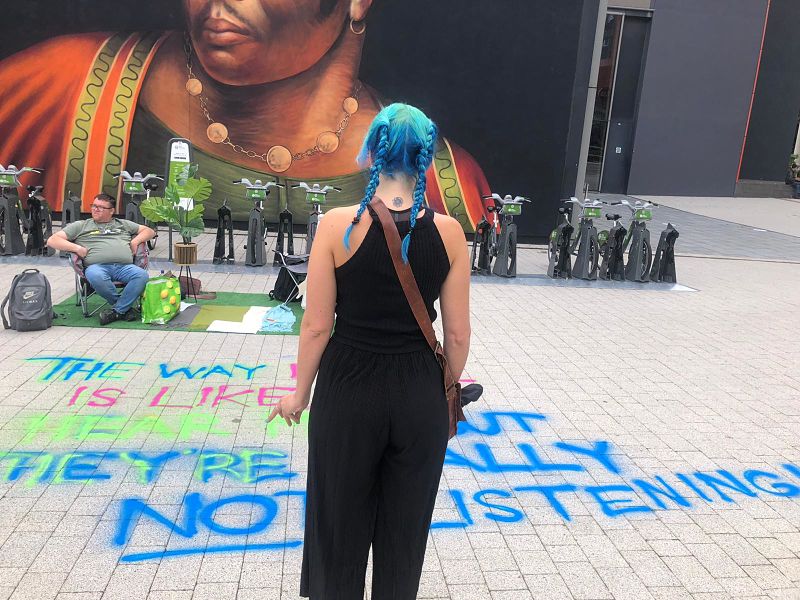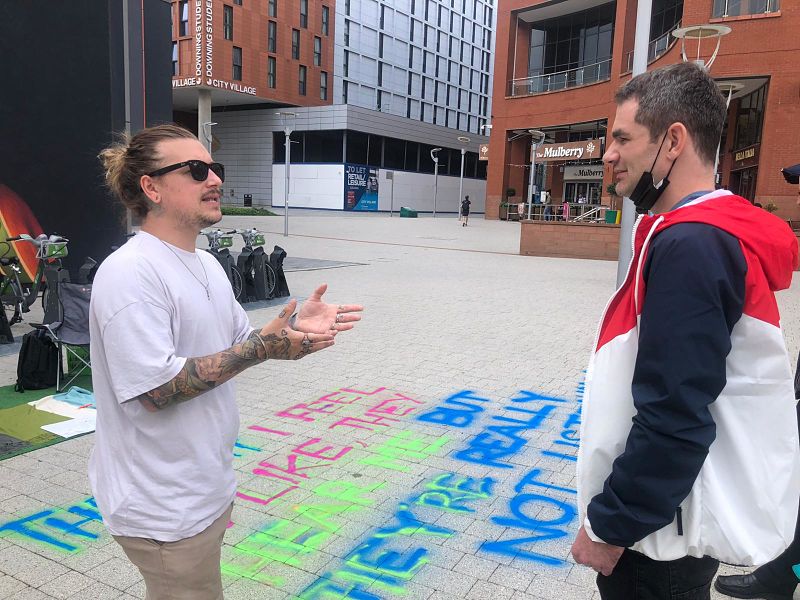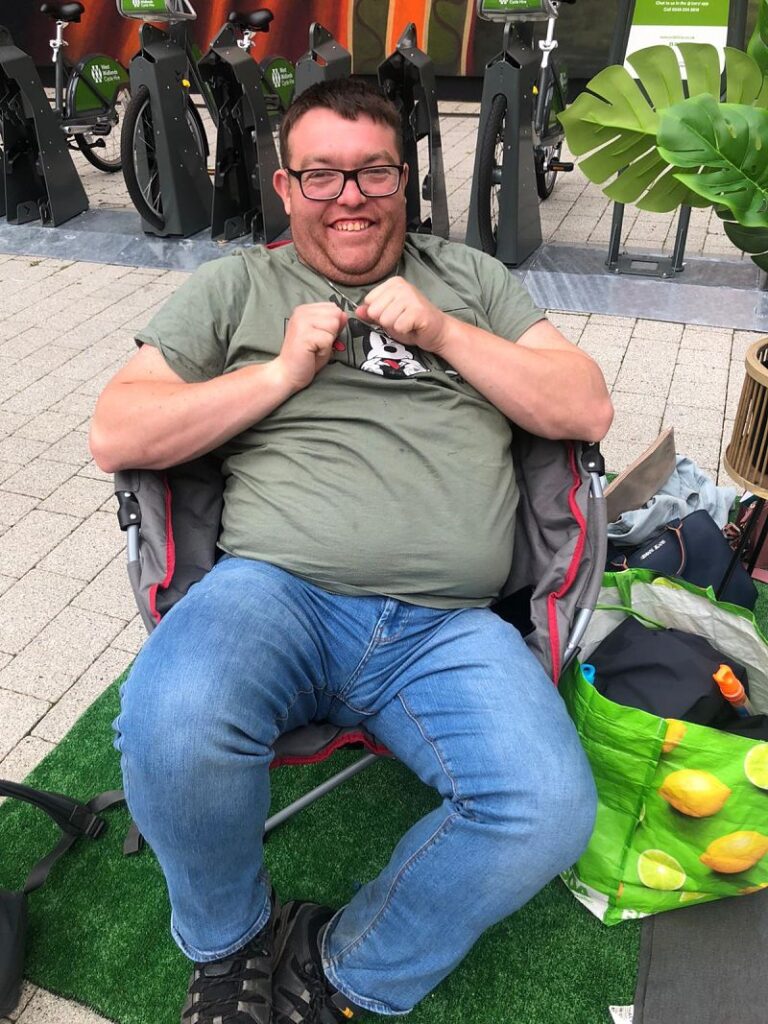In July, we shook out the faux grass, dug out the camping chairs and dusted off our work boots to set up the first parklet in Coventry in 18 months.
Restrictions lifting means we are able to get outside and meet people again and we are very excited about this! With community members Charley, Amber and John there in support, it was time to talk.

Our mission? To engage people in a conversation about transforming community mental health services in Coventry and Warwickshire. We’re helping produce a sustainable system for adults with severe and continuing mental illness.
It will be co-designed by an alliance of local authorities, voluntary and community organisations and people who have themselves experienced mental health challenges. £11.9 million in government funding has been given to Coventry and Warwickshire Health and Care Partnership to achieve this.
1.30pm
Arrival at Belgrade Plaza, Coventry – a recently redeveloped paved community space encircled by the city’s Belgrade Theatre, restaurants, student accommodation, architectural landscaping and fountains. We start to set the scene for our parklet.
People immediately begin gathering and talking to community organisers Sophie and Calvin about what they are doing.
A recent and now famous quote by Britney Spears on display helps spark conversation: “The way I feel is like they hear me but they’re not really listening.”

What is a parklet?
A parklet temporarily alters perception of a public space, disrupting the norm.
It’s a physical way of saying “normal service is suspended”. We’re making room for a conversation and removing the parameters of what is usually deemed “acceptable”. People are naturally curious and are welcomed into the space to talk.
Today we’re seeking people with stories to tell about mental health who want to take the conversation further later on a one-to-one basis.
2pm
Queues start to form – people are waiting for their opportunity to share their thoughts on mental health. The grass, plants, chairs and signs are at once unexpected and welcoming and people are responding. They are reading Britney’s quote and adding their own to the board.
We’re heartened to find people willing to talk so openly about their mental health with strangers.
The sun shines. The setting is bright and inviting. But it is in stark contrast to the stories we are hearing:
“I was in the hospital for 15 hours. I told them I was suicidal. They told me I wasn’t a serious enough case because I hadn’t done anything to myself yet. I was so scared. I wanted to feel safe.”
“Just a 10 minute phone call can change someone’s path. I had to find services myself, they should send a letter with a list of help.”
2.30pm – 5pm
Sophie and Calvin talk to people throughout, people with lived experience of mental health and employees of local organisations working for better mental health in the city.
People are taking photos to share on social media and asking friends to come down.

The conversations are passionate and powerful and they are helping us build a picture of what is happening and what needs to change.
Two themes emerge from the day:
- People are on a waiting list for help for months, sometimes years. People want help before their mental health deteriorates further over time.
- Often people know what they need but when they ask for it, they don’t feel heard.
“My mental health worker comes every three weeks. I had to wait a year for this. Other people have had to wait longer. They rehoused me.”
The people we speak to seem to appreciate an opportunity to discuss their experiences, often for the first time since what happened to them.
Outcomes
It’s time to wrap up and clear everything away. The quote board is full and demonstrates that people felt able to contribute to the conversation.
Our community organisers record what they’ve heard and later complete their reflections in order to plan what happens next.
- Over 20 appointments are made to continue the conversation with people we met today on a one-to-one basis.
- Four more are arranged with community mental health groups.
We’re also working with Coventry Business Improvement District (BID) to look at different and innovative ways to engage city centre visitors.

We need your ideas!
More parklets are likely to pop up and for this to happen, we’d like community members to suggest where we go next. We want to talk to more people from ethnic minority groups – where would be a good public place for a parklet?
Email Sophie or Calvin with your ideas.
About the Mental Health Transformation Plan
Grapevine’s Connecting for Good Cov team and Rethink Mental Illness are working together in partnership with the NHS, local authorities, local citizens and people with lived experience to develop a co-produced Mental Health Transformation Plan for Coventry and Warwickshire.
We will do this by engaging and facilitating input from community and grassroots organisations to ensure our strategy is designed and delivered in a way that listens to, draws from and mobilises as many people as possible who are or have been affected by mental illness.
Email the team directly at: mentalhealth.communications@covwarkpt.nhs.uk
